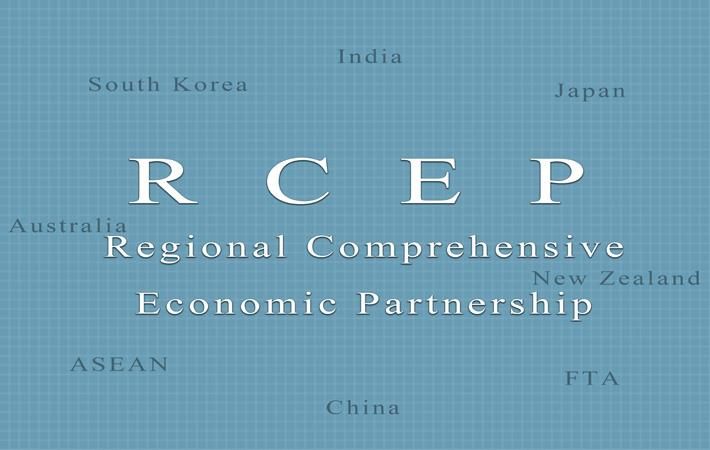Interviews
Japan tries to convince PRC to relax RCEP demands on India
29 Oct '19
3 min read

Pic: Shutterstock
Japan is reportedly trying to convince China to lower demands put forward to India at the proposed 16-member Regional Comprehensive Economic Partnership (RCEP) by seeking a reduction or elimination of import duties on goods. India had raised strong last-minute objections to the pact at the meeting of trade ministers in Bangkok earlier this month.
While Japan has perhaps realised that India’s political appetite for agreeing to the RCEP will fade unless China’s demands reduce a bit, the far eastern nation would also want to ensure that India does not backtrack further if it manages to convince China to compromise, a report in an Indian newspaper said quoting an anonymous official.
Trade ministers from RCEP member nations are scheduled to meet again on November 2-3 in the same city to explore if an announcement on concluding the deal could be made at the RCEP Leaders Summit on November 4 as scheduled, or whether a partial conclusion is all that that can be managed at the moment.
The RCEP deal is being negotiated by 16 countries, including the 10-member Association of Southeast Asian nations (ASEAN), China, India, South Korea, Japan, Australia and New Zealand.
Many demands raised by India were in the field of enhanced coverage of items under the auto trigger mechanism and relatively tougher rules of origin. India has also demanded to shift the base year for tariff cuts to 2019, which is being considered unreasonable by other members as India has already negotiated the whole deal on the basis of 2014 as the base year.
Another newspaper report said RCEP has agreed to not have any dispute settlement mechanism in the e-commerce chapter, which implies there is no scope of challenging India’s domestic legislation.
While the auto trigger mechanism will lead to an increase in import duties as soon as inflows of a particular product rise beyond a certain threshold, tough rules of origin aim to ensure that there is substantial value addition to a product before it is exported to another country where it is eligible for preferential duties.
Many industrial sectors and farmers groups in India feel cheap Chinese imports will flood the Indian market once import duties on goods from China are pared. Last week, several farmers’ organisations protested against including agricultural commodities in RCEP.
RCEP has also been criticised by opposition parties, with Congress party member of upper house of parliament Jairam Ramesh saying it will be the third big jolt to the Indian economy by the government after demonetisation and goods and services tax (GST).
While Japan has perhaps realised that India’s political appetite for agreeing to the RCEP will fade unless China’s demands reduce a bit, the far eastern nation would also want to ensure that India does not backtrack further if it manages to convince China to compromise, a report in an Indian newspaper said quoting an anonymous official.
Trade ministers from RCEP member nations are scheduled to meet again on November 2-3 in the same city to explore if an announcement on concluding the deal could be made at the RCEP Leaders Summit on November 4 as scheduled, or whether a partial conclusion is all that that can be managed at the moment.
The RCEP deal is being negotiated by 16 countries, including the 10-member Association of Southeast Asian nations (ASEAN), China, India, South Korea, Japan, Australia and New Zealand.
Many demands raised by India were in the field of enhanced coverage of items under the auto trigger mechanism and relatively tougher rules of origin. India has also demanded to shift the base year for tariff cuts to 2019, which is being considered unreasonable by other members as India has already negotiated the whole deal on the basis of 2014 as the base year.
Another newspaper report said RCEP has agreed to not have any dispute settlement mechanism in the e-commerce chapter, which implies there is no scope of challenging India’s domestic legislation.
While the auto trigger mechanism will lead to an increase in import duties as soon as inflows of a particular product rise beyond a certain threshold, tough rules of origin aim to ensure that there is substantial value addition to a product before it is exported to another country where it is eligible for preferential duties.
Many industrial sectors and farmers groups in India feel cheap Chinese imports will flood the Indian market once import duties on goods from China are pared. Last week, several farmers’ organisations protested against including agricultural commodities in RCEP.
RCEP has also been criticised by opposition parties, with Congress party member of upper house of parliament Jairam Ramesh saying it will be the third big jolt to the Indian economy by the government after demonetisation and goods and services tax (GST).
Fibre2Fashion News Desk (DS)
Popular News
Leave your Comments
Yohan Lawrence
Joint Apparel Association Forum (JAAFSL)
Pratik Gadia
The Yarn Bazaar - Filosha Infotech Private Limited
Andreas Rass
ZIMMER AUSTRIA | Digital Printing Systems
































-Ltd..jpg?tr=w-120,h-60,c-at_max,cm-pad_resize,bg-ffffff)





.jpg?tr=w-120,h-60,c-at_max,cm-pad_resize,bg-ffffff)
.jpg?tr=w-120,h-60,c-at_max,cm-pad_resize,bg-ffffff)






